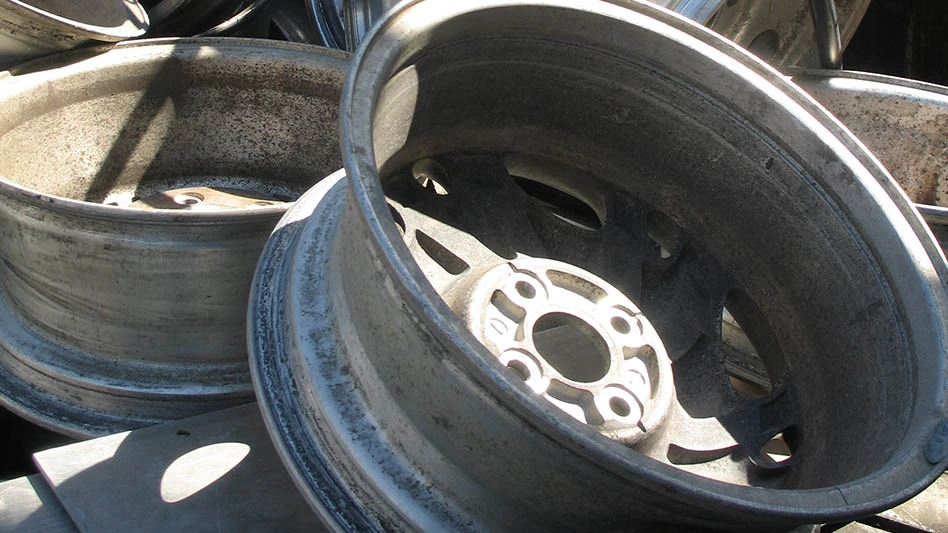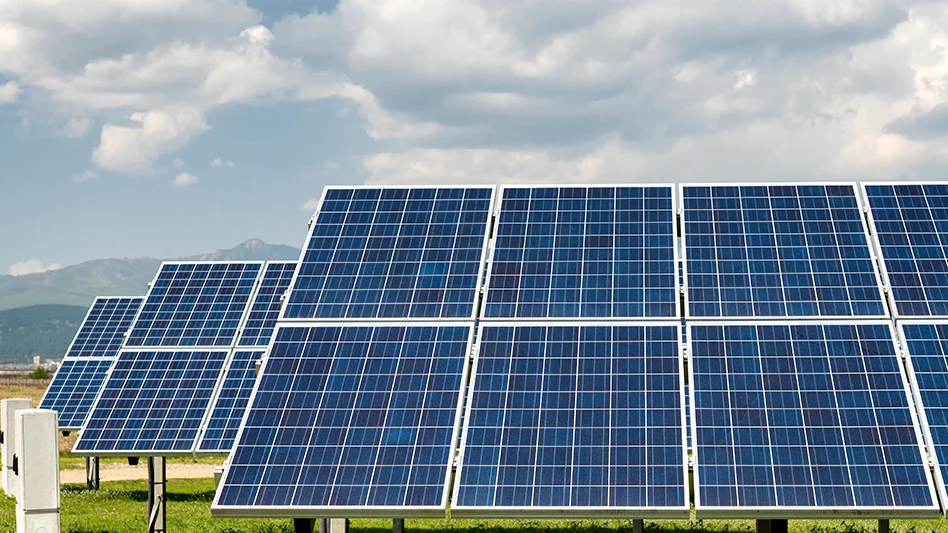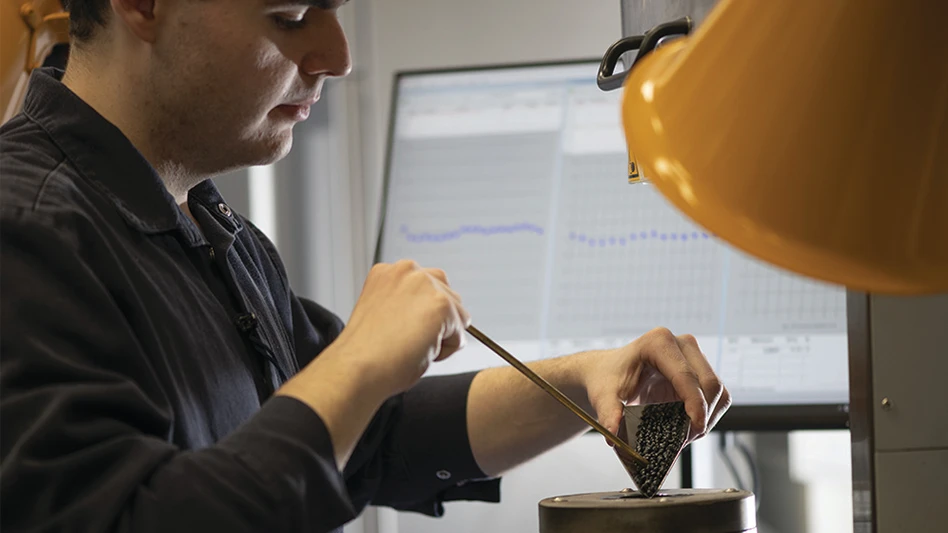
Randy Runtsch | stock.adobe.com
The Minnesota Legislature has passed an extended production responsibility (EPR) bill, making it the fifth state in the U.S. to do so. The bill was signed into law by Gov. Walz on May 21.
The bill was part of omnibus legislation, HF 3911, the 2024 Environment and Natural Resources Budget and Policy bill, passed May 17 by the Minnesota House of Representatives as amended by the conference committee report, by a vote of 70-56.
The EPR bill, the Packaging Waste & Cost Reduction Act, sponsored by Rep. Sydney Jordan, makes packaging producers responsible for the waste they create and incentivizes them to increase recycled content.
“Across Minnesota, we are inundated with packaging, from our doorsteps to store shelves. Packaging waste and printed paper now account for 40 percent of our garbage,” says Jordan, vice chair of the Environment and Natural Resources Finance and Policy Committee. “The burden of managing this ever-growing deluge of packaging waste currently falls on local governments—and taxpayers.”
The EPR program will create a producer responsibility organization (PRO) comprised of the largest producers of packaging sold in Minnesota. Members of the PRO will be required to pay fees based on the type and amount of packaging they sell in the state. Producers will be assessed fees that will be used to pay most recycling costs for residents, schools, most nonprofits and government entities and support additional increased access to recycling, composting and reuse services; fund public education; conduct a needs assessment every five years to evaluate the program’s impact on the waste stream; and cover the Minnesota Pollution Control Agency’s (MPCA) costs of implementing and enforcing the program.
The program also requires MPCA to create two collection lists: a curbside recyclability list and an alternative collection list. Based on the initial needs assessment and feedback from the public, the agency will determine the types of materials that can be recycled curbside and those that can be recycled through alternative methods of collection, such as store drop–off. If a material is not on either list and is not reusable or compostable, it cannot be sold into the state after 2032.
Producers also will be required to redesign their packaging to be reusable, recyclable or compostable by 2032, though the MPCA could approve specific materials for a deadline extension through 2040, and will be required to meet specific MPCA-established targets for waste reduction, reuse, recycling and postconsumer recycled content that are based on findings in the needs assessments.
Nonprofit material recovery facility (MRF) operator Eureka Recycling, the Consumer Brands Association and Ameripen (American Institute for Packaging and the Environment) and the American Beverage Association have voiced their support for the legislation, while the American Forest & Paper Association called for Walz to veto the bill.
Minneapolis-based Eureka says it worked with its partners in the MN Zero Waste Coalition to strengthen the language of the bill in ways that aim to eliminate the most problematic and unnecessary packaging, prioritize reduction and reuse and hold producers accountable for their packaging choices while ensuring the public has a voice in the implementation process.
Ameripen, based in Springfield, Massachusetts, also has voiced its support for the EPR bill, saying it is “unprecedented in its unique framework that aligns with Minnesota’s national leadership on strong recycling and composting infrastructure and one of the country's highest existing recycling rates.”
“Minnesota’s packaging producer responsibility legislation is a fair compromise that establishes a model of shared responsibility and is aligned with Ameripen's key principles,” says Dan Felton, executive director of Ameripen. “This legislation supports a system that is reliable, efficient and effective and enables a strong producer responsibility organization to ensure that producer fees will directly fund initiatives to increase recycling and composting even further in the state.”
Ameripen notes that packaging producers will begin paying for recycling costs in Minnesota starting at 50 percent in 2029, 75 percent in 2030 and 90 percent in 2031 and beyond, while service providers must also register and meet performance standards for reimbursement based on competitive bids, and local governments will continue to be engaged partners.
The PRO will establish a process and reimbursement model for core recycling functions for residents and limited other entities only, with Ameripen noting that the framework allows the PRO to focus on core activities without the burdens imposed by EPR laws in other states, such as artificial timelines for arbitrary recycling targets, mandates to fund recycling for massive commercial operations that can manage their own recycling costs or landfilling and unrelated mandates around packaging composition.
The organization adds that Minnesota’s packaging EPR legislation demonstrates that each state is unique and should approach any recycling, composting and packaging policy by considering its existing infrastructure and laws.
“It also reflects compromise and a reminder that legislative debates do not produce perfect policy, but rather a reflection of what may be possible at any given moment,” Ameripen says.
The Arlington, Virginia-based Consumer Brands Association's Vice President, Packaging Sustainability, and Head of State Affairs John Hewitt says, "The consumer packaged goods industry supports packaging policies that protect consumer safety, improve recycling access and deliver strong environmental outcomes which is why we commend the Minnesota legislature for passing the Packaging Waste and Cost Reduction Act. The extended producer responsibility framework established in this bill, which finances recycling through shared responsibility, will strengthen Minnesota’s recycling infrastructure and increase recycling access for consumers. The landmark piece of legislation is the result of a collaborative legislative process with substantial input from stakeholders across the packaging value chain. We urge Gov. Walz to promptly sign the bill that not only reinforces the state’s position as a national leader in recycling and composting infrastructure but also capitalizes on the state’s impressive recycling rates and benefits consumers.”
Washington-based American Beverage Association President and CEO Kevin Keane calls Minnesota's EPR legislation "well-designed," adding that it helps establish "a strong standard for effective collection systems. This bold solution will collect more recyclable materials, create local jobs and help protect the environment without burdening Minnesota residents."
Sponsored Content
Still relying on manual sorters?
Let AI do the heavy lifting. Waste Robotics delivers reliable, high-performance robots tailored for complex waste streams. They require minimal maintenance, are easy to operate, and are designed to boost your recovery rates. Smarter sorting starts with the right partner. Waste Expo Booth #1969 & REMA #2843
Click here to see our robots in action!Keane says, “The Minnesota EPR legislation is modeled after successful EPR programs that create a circular system for packaging. These systems ensure producers fund and operate the system and have access to their recovered materials so they can be turned into new products. They also provide fair and appropriate government oversight and accountability. Importantly, this producer-led system will be financially sustainable and convenient for Minnesotans.
“With this step, Minnesota joins Colorado as a leader in passing legislation that gets these essential components right," he adds.
The American Forest & Paper Association (AF&PA) President and CEO Heidi Brock voiced that association's disappointment with the Minnesota Legislature’s decision to include EPR language in HF 3911, saying "Paper is one of the most widely recycled materials in the U.S., driven by market-based solutions and billions of dollars in investments advancing the best use of recycled paper in our products.
“Our industry provides a recycling model to emulate rather than burden with untested systems that limit future investment. HF 3911 is not the appropriate vehicle for legislation that ultimately punishes responsible producers."
Brock says she would prefer an opportunity for an EPR system to be considered as a standalone bill.
In addition to the EPR legislation, HF 3911, authored by Rep. Rick Hansen, a Democrat from South St. Paul who is chair of the Environment and Natural Resources Finance and Policy Committee, includes investments in tree planting and addressing emerald ash borer, a public water inventory update, policies strengthening and enforcing Minnesota’s air quality statutes and a regulatory framework for helium gas production for $46 million in total investments.
*This article was updated May 22 to reflect Gov. Walz having signed the bill and to add comments from the American Beverage Association.
Get curated news on YOUR industry.
Enter your email to receive our newsletters.
Latest from Recycling Today
- New recycling grant program launches in Massachusetts
- Tire Recycling Foundation names executive director
- Dock 7 named 2025 Exporter of the Year at New Jersey International Trade Awards
- Waste Connections reports ‘better than expected’ Q1 results
- Commentary: How EPR is transforming the packaging industry
- Acerinox names new North American Stainless CEO
- Greenwave closes 2024 books with red ink
- Steel Dynamics nets $217M on record shipments








